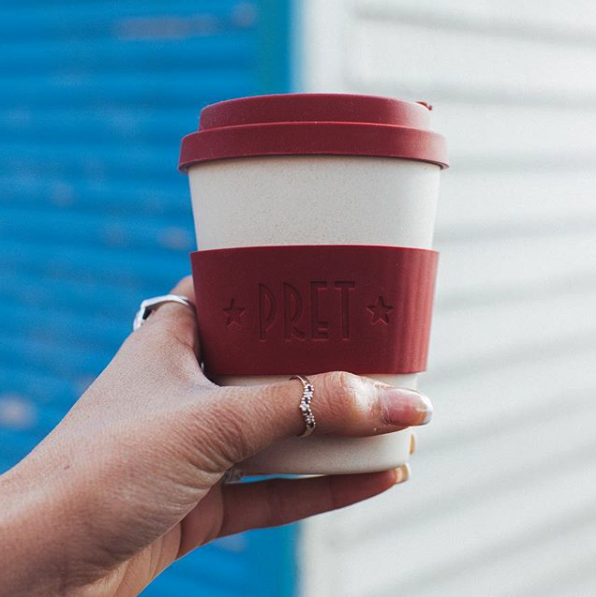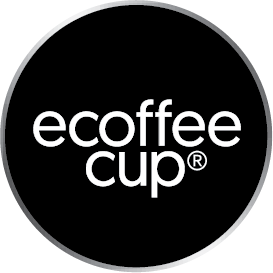Our Story.
“We were most definitely part of
the problem.”
The modern single-use “paper” cup was born in 1984. Seeking a solution to its polystyrene “problem”, the Starbucks Corporation of Seattle, Washington set about dampening consumer disquiet relating to the eco-credentials of its ubiquitous white foam cup, by replacing them with an “environmentally friendly” paper one.
With just seventeen outlets back then, who had ever heard of Starbucks anyway? Oh well, at least they were leading the way in sustainability, right?
Job done. Well, maybe not.
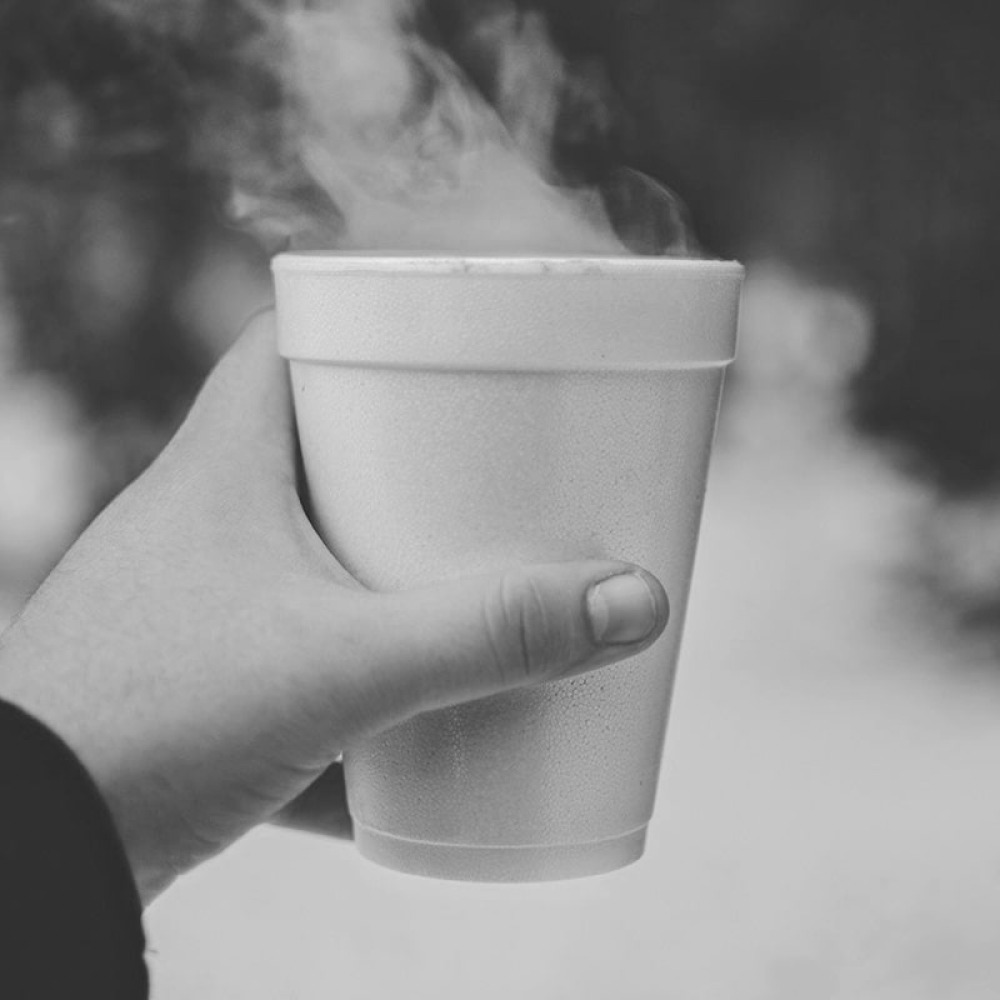
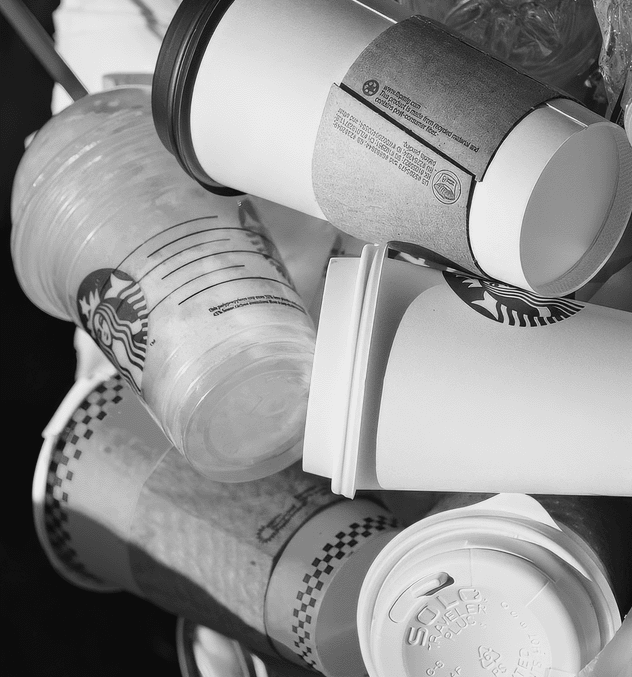
By 2012, the year in which we finally woke up to the problem of single-use cups, Starbucks had 18,066 stores – and the global to-go coffee industry had ballooned to a $15.2b behemoth, with hundreds of millions of takeaway beverages being served every single day in “innocuous” paper cups – 100 billion of them.
As it transpired, they weren’t as innocuous as first thought, with a plastic lining making them almost impossible to recycle.
It turned out that, despite what people may have been led to believe, the eco creds of these cups were a falsity.
“We decided to do something about it.”
It took us two years to perfect, but in February 2014, Ecoffee Cup was born. Making its UK debut at Birmingham’s Autumn Fair, the response was overwhelmingly positive – but mainly for the wrong reasons.
While everyone loved our colours and patterns, most didn’t think single-use was a problem, and even fewer believed that cafes would accept reusables.
Some saw our true potential with Loughborough University and Eden Project being early adopters of our products in re-use scenarios.
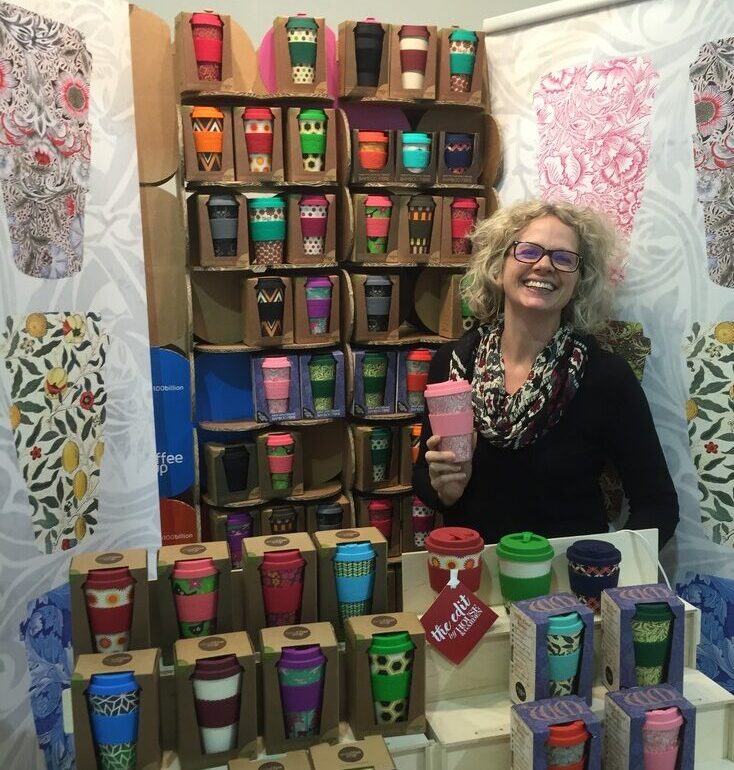
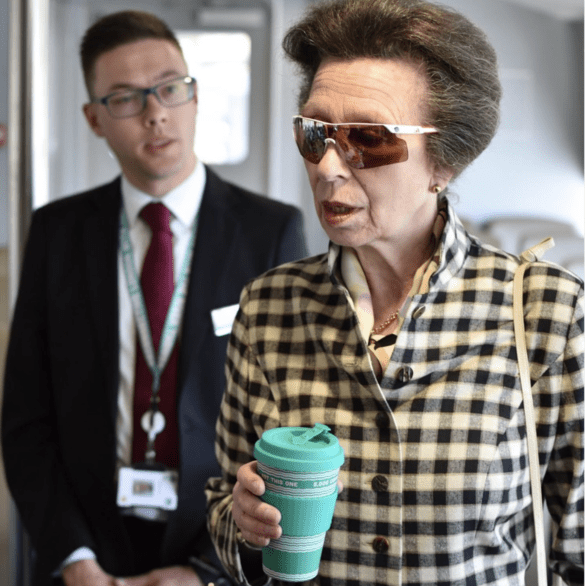
But it wasn’t until 2016 that things really started to move in the right direction.
As part of his War on Waste program, TV personality Hugh Fearnley-Whittingstall shone a long overdue media spotlight on the enormous and growing problem of single-use waste – with a particular focus on to-go cups.
Finally, the penny started to drop. For the first time, re-use had permeated both media and political realms.
A decade on and things have come a long way – at least in some senses. We’ve been in Vogue, in Forbes, in parliament, in the hands of Royalty – and even on the front cover of The Daily Mail!
We’ve been cloned, copied, called out, pilloried and even made Oprah’s Christmas Favorites.
In a world-first, in 2018 we partnered with Bristol-based Boston Tea Party Cafes to remove 100% single-use cups from their 23 cafes. In 2020 (and every year since) we partnered with ITV to remove single-use from the Love Island Villa.
But have we achieved what we set out to do? Sadly, we don’t feel like we’ve come close.
Re-use rates remain stubbornly stuck – even in decline in some markets. COVID was a near-fatal body blow. And ever since, lobbying against re-use in certain markets has been fierce. It’s not quite what we envisaged – heading into our second decade.
But with every good fight comes a resolution. We believe now is the time to double down and build on these important foundations. Now is the time to push forward and make a real difference. And that’s why we have evolved.
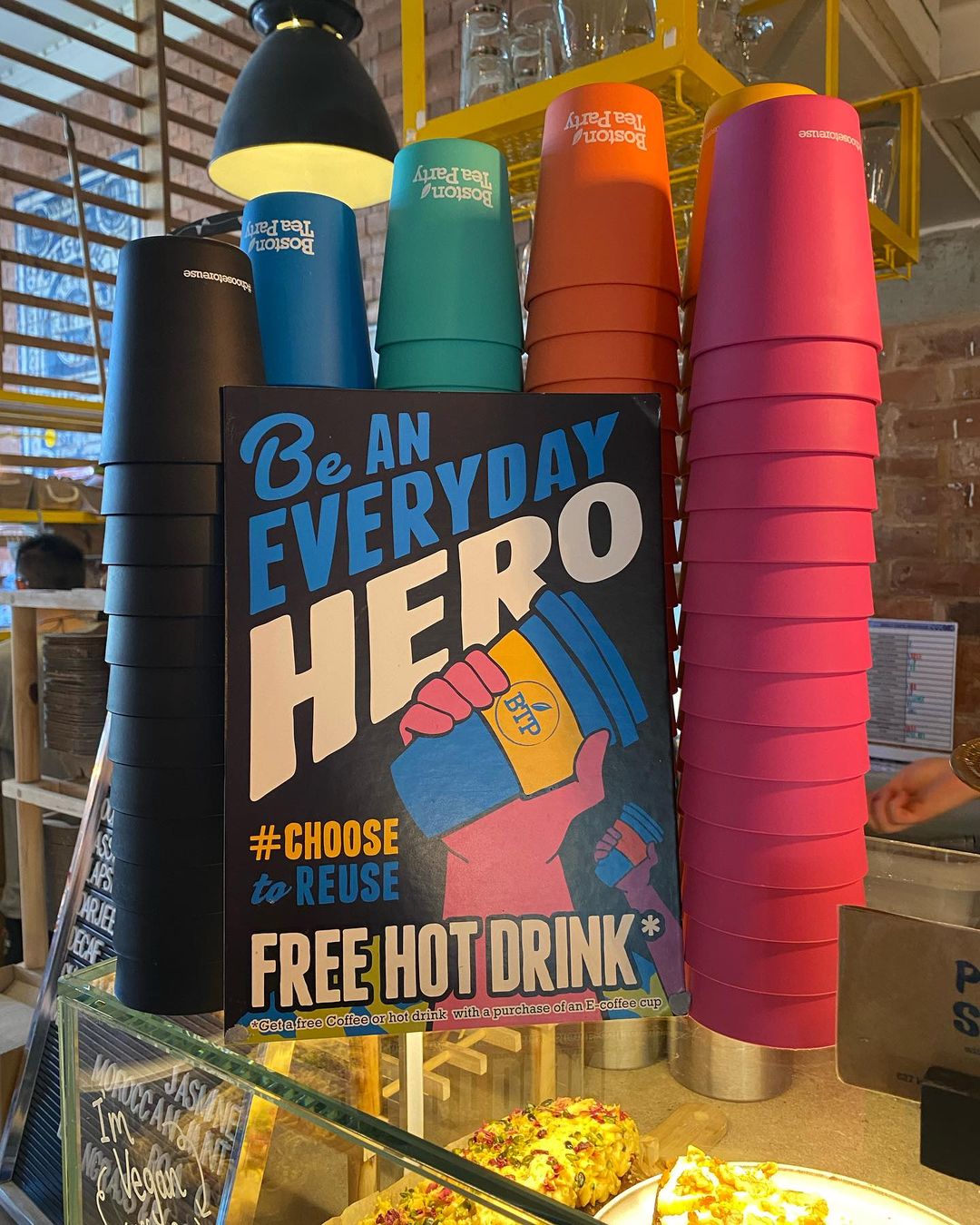
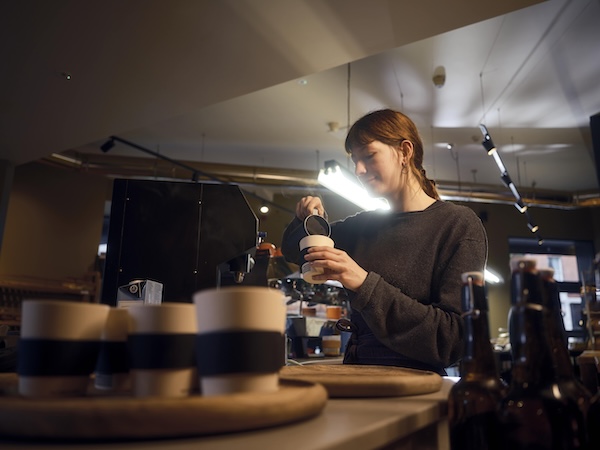
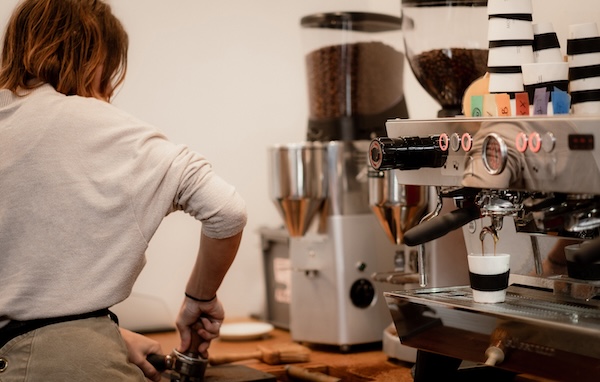
In 2021 at the tail end of COVID, we started manufacturing Ecoffee Cup Nova in Ireland.
In a huge show of faith, in 2022 we partnered with London’s iconic Monmouth Coffee Company to remove 100% single-use cups from their high-footfall cafes – saving over 1m Cups from landfill in the first 18 months.
Today we offer solutions for those wanting to make a real difference. Based on real consumer insight, we provide commercial reuse schemes both tested and proven in the real world – practical, cost-effective and attractive alternatives. More than just Cups, we provide contract warehousing, just-in-time logistics and inventory management.
In 2024, we partnered with easyJet to remove over 10 million single-use items from cabin and flight decks. In 2024 we partnered with Disney to remove 100% single-use from their staff cafes in London.
Our main focus continues to be upon broadening our congregation, beyond the 3% of committed re-users, to a mainstream audience of consumers, many of whom are yet to engage with the issue of single-use.
We resolutely disagree with the notion that re-use should be the preserve of the middle class, nor do we believe that an Ecoffee Cup should cost £28.
The next few years are critical. Every decision, no matter how small, counts towards creating the tomorrow we all want. Together we must translate hubris into action and kick our single-use habits for good. #choosetoreuse
